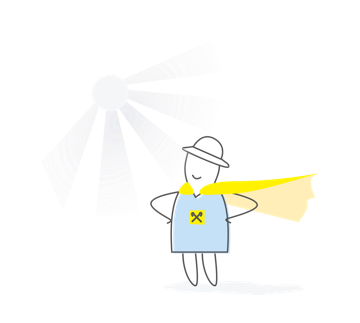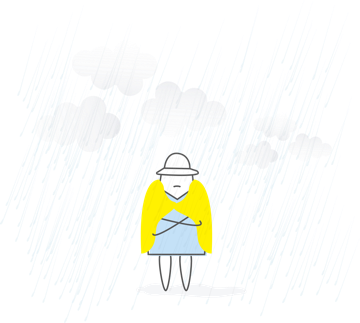Business card: advice on use, features of accounting
A business card is a convenient tool to simplify the financial operations of entrepreneurs. From a business trip to purchasing goods - its range of applications is wide and does not carry additional “paper” difficulties. About all the tax and practical nuances of using such cards - read the material.
Who can be issued a business card?
A business card is issued in the name of the FLP. If the need arises, the entrepreneur can draw up a separate card for a trustee (employee). The legislation does not allow the use of a personal Business card by proxy (by an employee or a family member).
For what purposes can I use a business card in Ukraine?
From a Business card, as well as from a current account, an entrepreneur can pay for any services, goods and other expenses directly related to his business activities. For example:
travel expenses, both in Ukraine and abroad (from obtaining visas to paying lunch in a restaurant with partners);
hospitality expenses, participation in exhibitions and conferences, seminars and business events;
settlements with suppliers, procurement of necessary goods, materials, components;
purchase of equipment, spare parts, fuels and lubricants, containers, packaging;
expenses for the maintenance of premises (rent and utilities);
transportation costs, rental vehicles, postage, communications;
payment for obtaining permits and licenses;
taxes and fees for themselves, personal expenses.
Usage restrictions
A business card cannot be used for salary and social payments;
taxes and fees from the salary of employees (only for FLP);
settlements with foreign counterparties and under foreign trade agreements;
making foreign investments in Ukraine and investments of residents outside its borders.
It should also be noted that since April 28, 2020, restrictions on replenishment of the card through the payment terminal were introduced. This amount should not exceed 5000 UAH for one replenishment
For what purposes can I use the card abroad?
Abroad, you can pay with the hryvnia Business card, while the currency conversion will be carried out automatically. An entrepreneur gets rid of the hassle of buying cash currency and declaring it. It is very convenient and safe. When crossing the border, the amount of funds on the business card does not need to be declared, since the money actually remains in the country. The restriction on the export / import of currency applies only to cash. It is worth adding that in many institutions, retail outlets in Europe and the United States, cash is accepted limitedly or not accepted.
Abroad, an entrepreneur can make most of the same expenses as in Ukraine, but first of all it is convenient to pay with a business card for expenses associated with a business trip and participation in events (exhibitions, negotiations, conferences, etc.). These costs include:
visa application, insurance;
hotel reservation, payment for accommodation;
payment for plane tickets, baggage, purchases at the airport;
transfer, car rental, local taxes and fees
visiting restaurants, food, fuel; household services; hospitality expenses;
participation in events, exhibitions, partnership projects, etc.
The legislation does not limit the amount of expenses on a Business card outside the country. But from April 28, 2020, an additional requirement is applied to identify not only the cardholder, but also the recipient of funds if the payment amount exceeds the amount equivalent to 30,000 UAH. The daily subsistence allowance is also regulated: it cannot exceed 80 euros for each calendar day of a business trip.
If an entrepreneur goes on a business trip abroad, he does not submit any reports on the expenditure of funds to the tax. This applies to the FLP of all groups and taxation systems. But from practice, it is recommended for some time to save primary documents: checks, receipts, bills and other documents confirming expenses confirming the use of foreign currency funds: in case of planned or unscheduled tax inspections. Since the STS also exercises currency control, when conducting a routine verification, its employees have the right to demand documents related to the implementation of currency transactions (expenses from the Business Card) abroad.
Can I use a Business Card for personal spending?
Often, funds from a business card are used for personal expenses. For example, to pay for purchases in supermarkets, groceries, clothes, the purchase of furniture, household appliances, building materials, tickets - as an analogue of a “regular” card.
At the moment, this is not prohibited by law. In January of this year, the NBU initiated the separation of business expenses from personal. But subsequently, amendments were made to clause 14 of the Instruction “On the Procedure for Opening and Closing Bank Accounts of Bank Clients” by NBU Decree No. 162 dated 12/27/2019. The decision applies to all entrepreneurs, regardless of group and tax system.
Nevertheless, the Business Card is a convenient tool for doing business, and we recommend using it for its intended purpose. It makes sense to distinguish expenses even for the convenience of internal accounting. Transferring funds for personal needs to an individual’s card is as easy as transferring money to a business card.
How are business card costs taken into account when accounting?
Entrepreneurs, unlike legal entities, do not keep accounting records, including cash flow records on Business cards. There are nuances, depending on the FLP group.
FLP of the first, second and third groups - VAT defaulters keep records of only income (paragraphs 296.1.1 of Article 296 of the Tax Code of Ukraine). Even if the entrepreneur spent part of the money on his own needs, and part on the business, and another part abroad, this is not reflected in accounting. Representatives of these groups keep records of expenses on the Business Card for their own purposes only.
Entrepreneurs on the general taxation system and the private equity tax of the third group - VAT payers - keep records of expenses (paragraph 177.2 of article 177 and paragraph 296.1.2 of article 296 of the TCU). But they do this not according to the accounting rules, but in the manner determined by the Tax Code of Ukraine and orders of the Ministry of Revenue of September 16, 2013 No. 481 (for FLP on the common system) and the Ministry of Finance of June 19, 2015 No. 579 (for FLP - peers). For FLP on a common system, we recommend collecting primary documents confirming expenses from the Business Card, as this allows to reduce taxable income (Article 177 of the Tax Code).
For FLP of the third group - VAT payers. If a Business Card pays expenses related to business activities in the amount of more than 240 UAH (and the supplier is also a VAT payer), tax invoices must be requested. They (together with other invoices) will be added up to account for the tax credit for VAT.
Internal accounting is a personal matter of every entrepreneur, and approaches to it can be different. For example, if the business card is used by the hired employees on whom it is issued, it is worth requesting reports from them in order to control expenses. An advance report form is convenient for this task, which is filled out by a legal entity. If the FLP does not have hired personnel, it may not have any cost accounting at all.
Do I need to submit reports on the use of the card to the tax?
Entrepreneurs, regardless of the chosen taxation system, do not submit a separate report on Business cards to the tax. With FLP on a single tax, everything is generally simple, since only income is indicated in the declaration.
Entrepreneurs working on a common system control both income and expense, but the use of a Business Card is not reflected in declarations, but only the total amount of expenses. After all, they can be produced: in cash; money withdrawn from the Business card; in non-cash form - from an account, card through a POS-terminal or on the Internet. That is, expenses on the card are simply included in the total amount of expenses of the entrepreneur for the reporting period when they are incurred. The declaration is submitted within the time limits adopted for the chosen taxation system.
Does the tax use of business cards check?
Representatives of the tax do not conduct separate inspections of expenditure transactions on the cards of entrepreneurs. There is no reason for this. The norms of the TCU provide only actual checks on compliance with the laws on cash flow regulation. A planned documentary audit provides verification of the correctness of accrual and timely payment of all taxes and fees. When it is carried out, the tax often only checks the movement of funds in the current account (both DT and CT turnover). The movement of funds on the card is checked extremely rarely, and that is, only the FLP on the common system, since only paid expenses are recognized as expenses.
Despite the fact that when using a Business Card, there is no additional accounting and separate reporting to the tax and they verify its use as part of a general documented planned audit, we recommend that you comply with applicable laws governing the use of payment cards.
Reference: Regulatory Framework for a Business Card
The use of Business Cards is regulated by the Law of Ukraine of 05.04.2001 No. 2346-III “On Payment Systems and Transfer of Funds in Ukraine” and the Regulation on the Procedure for Issuing Electronic Payment Funds and Carrying Out Transactions with Their Use, approved by the NBU Board of 05.11. 2014 No. 705.
Natalia Shcherbak, tax consultant for the newspaper "Private Entrepreneur", specially for the magazine "My Business"















